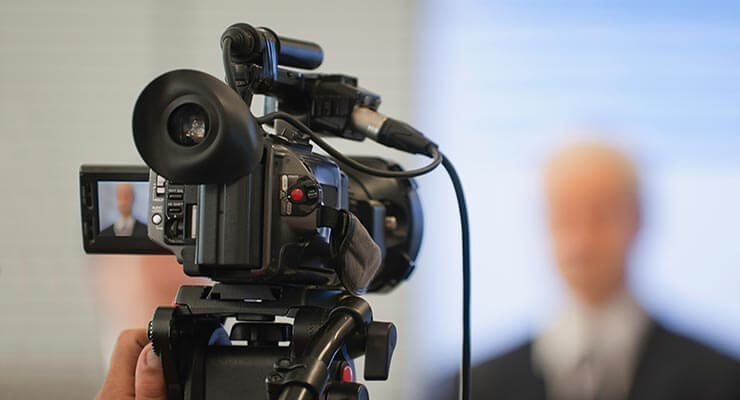Professional Legal Videography for Your Legal Needs.
Professional Legal Videography for Your Legal Needs.
Blog Article
The Function of Legal Videography in Depositions and Trials
Legal videography has actually arised as a necessary tool in both depositions and trials, giving a multifaceted technique to recording witness statements. As lawful specialists increasingly recognize its value, it motivates a deeper evaluation of just how these aesthetic records can influence juror understandings and test outcomes.

Significance of Lawful Videography
Lawful videography plays a pivotal role in the paperwork and discussion of depositions and tests. This customized area incorporates technical skills with legal knowledge to create a trusted document of process that can significantly influence case outcomes. The appearance of legal videography enhances the understanding of witness testimony, allowing jurors and judges to observe not only the talked words yet additionally the demeanor, feelings, and body movement of the witnesses.
Additionally, lawful videography offers an objective account of occasions, reducing the potential for misinterpretation that can occur with created transcripts alone. This visual documents functions as an important tool throughout trial discussions, promoting a clearer and even more convincing narrative for both complainants and defendants. The capability to replay video clip sections throughout court proceedings allows lawful teams to highlight vital points, enhancing their arguments successfully.
The importance of legal videography expands past the courtroom; it likewise plays an essential role in protecting proof for future reference, whether for charms or more legal activity. Thus, its integration into the lawful procedure is important for making sure a reasonable and exact representation of the facts, eventually adding to the search of justice.

Process of Legal Videography
While capturing the subtleties of depositions and trials, the process of lawful videography includes several critical actions that make sure premium, accurate recordings. Originally, an expert legal videographer prepares by reviewing the instance materials and recognizing the certain demands of the deposition or test. This prep work includes acquainting themselves with the participants and the context, which assists in catching relevant details.
On the day of the recording, the videographer establishes up the required tools, which usually includes high-definition video cameras, microphones, and correct illumination. Making certain ideal angles and audio high quality is critical, as it directly affects the performance of the recording. The videographer communicates with attorneys and individuals to develop protocols, making sure that every person understands the recording process.
During the deposition or test, the videographer meticulously tapes the process, paying close attention to both verbal and non-verbal hints. This consists of recording the disposition and reactions of witnesses and lawyers. After the session ends, the videographer may edit the video for quality and compliance with legal requirements, producing an end product that properly mirrors the proceedings for future recommendation and use in legal contexts.
Benefits in Depositions
The unification of videography in depositions offers numerous advantages that enhance the overall process of gathering proof. One primary advantage is the ability to record witness statements with aesthetic and auditory integrity, offering an extra precise depiction of the witness's attitude, tone, and body language. This multidimensional strategy allows lawyers and juries to examine trustworthiness more properly than conventional written records alone.
Additionally, videographed depositions function as a powerful tool for maintaining testimony. Needs to a witness become have a peek at this website unavailable for trial, their taped deposition can be played in court, ensuring that their evidence continues to be accessible and appropriate. This facet significantly decreases the danger of shedding essential info that can impact situation results.

Finally, videography improves the general professionalism of the deposition process, instilling confidence in clients concerning the thoroughness of their legal representation (legal videography). By leveraging innovation, legal professionals can considerably improve the effectiveness of depositions
Influence On Trials
In several tests, the assimilation of videography can substantially affect the discussion of evidence and the jury's perception. Legal videography captures witness testimonies and critical evidence in a dynamic format, allowing jurors to engage with the product on numerous degrees. This aesthetic element enhances the narration facet of a trial, offering context and psychological vibration that standard text-based proof may lack.
Moreover, video clip recordings can work as powerful devices for impeachment throughout interrogation. When inconsistencies occur between a witness's previous statements and their court room testament, video clip evidence gives an unbiased reference that can guide jurors' viewpoints. This immediacy and clarity can strengthen the integrity of a party's narrative while concurrently weakening opposing debates.

Future Trends in Legal Videography
As we look towards the future of lawful videography, numerous arising fads assure to reshape its function within the court. One considerable pattern is the combination of man-made intelligence (AI) in video analysis and editing. AI can streamline the process of recognizing vital minutes in videotaped depositions, permitting lawyers to swiftly access appropriate content, thereby boosting performance in situation preparation.
Additionally, the rise of digital truth view it now (VR) and augmented reality (AR) modern technologies is anticipated to transform how jurors experience proof. legal videography. By submersing jurors in a simulated environment, these modern technologies can supply a much more profound understanding of intricate scenarios, bring about even more informed considerations
Additionally, the enhancing need for remote depositions, increased by the COVID-19 pandemic, will likely continue. Lawful videographers will need to adjust to new software program and platforms to ensure top notch recordings in virtual setups.
Finally, the expanding emphasis on data safety will demand stricter methods for storing and sharing video clip evidence. As the lawful landscape evolves, lawful videographers should remain abreast of these trends to keep view website their relevance and performance in the judicial process.
Final Thought
In summary, lawful videography offers a critical function in the judicial procedure, improving the stability of depositions and trials. As innovation proceeds to advance, legal videography is poised to further transform its role within the legal landscape.
Report this page